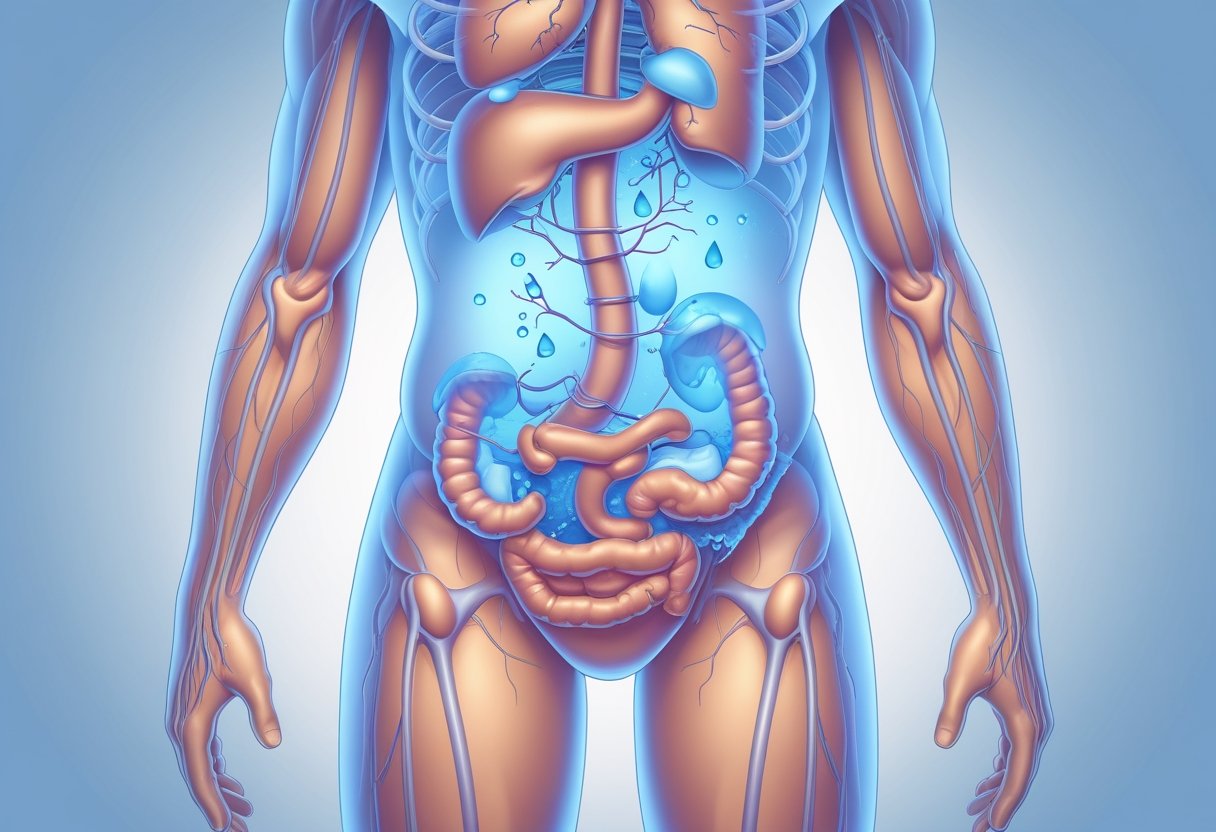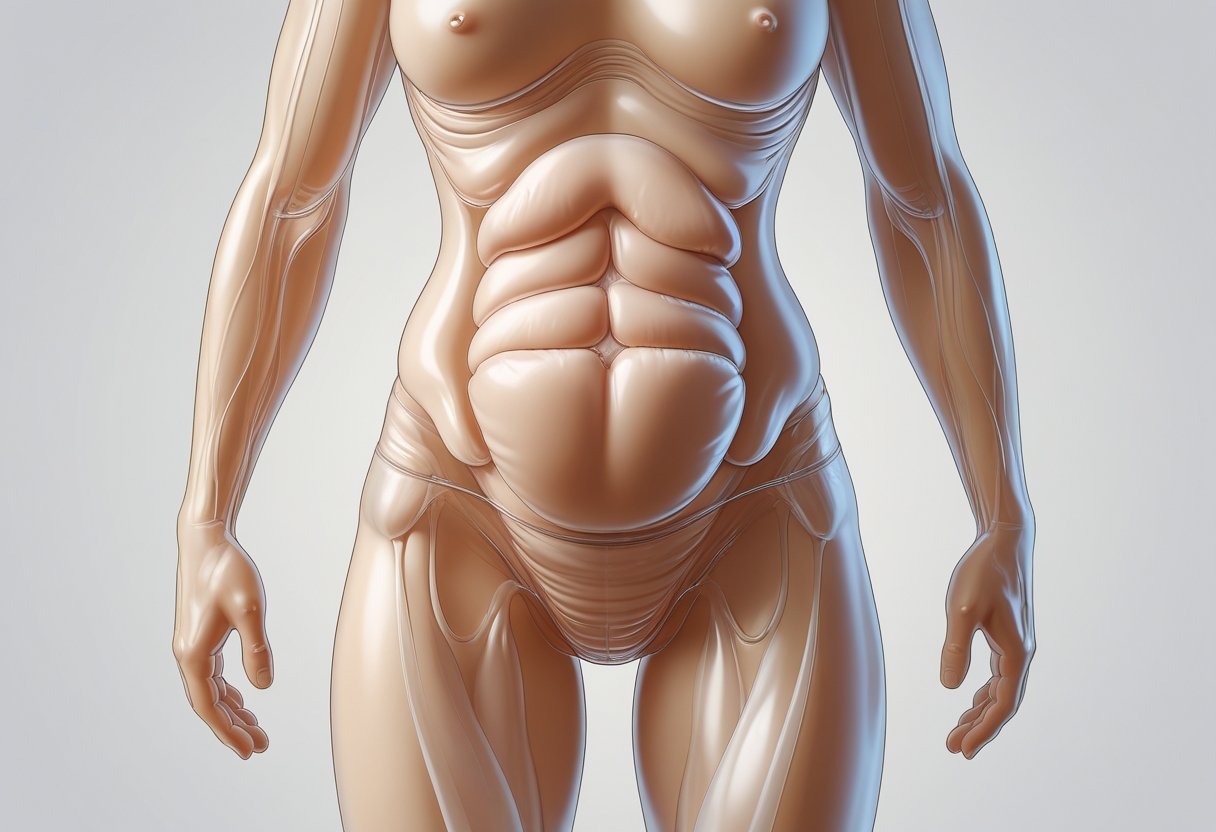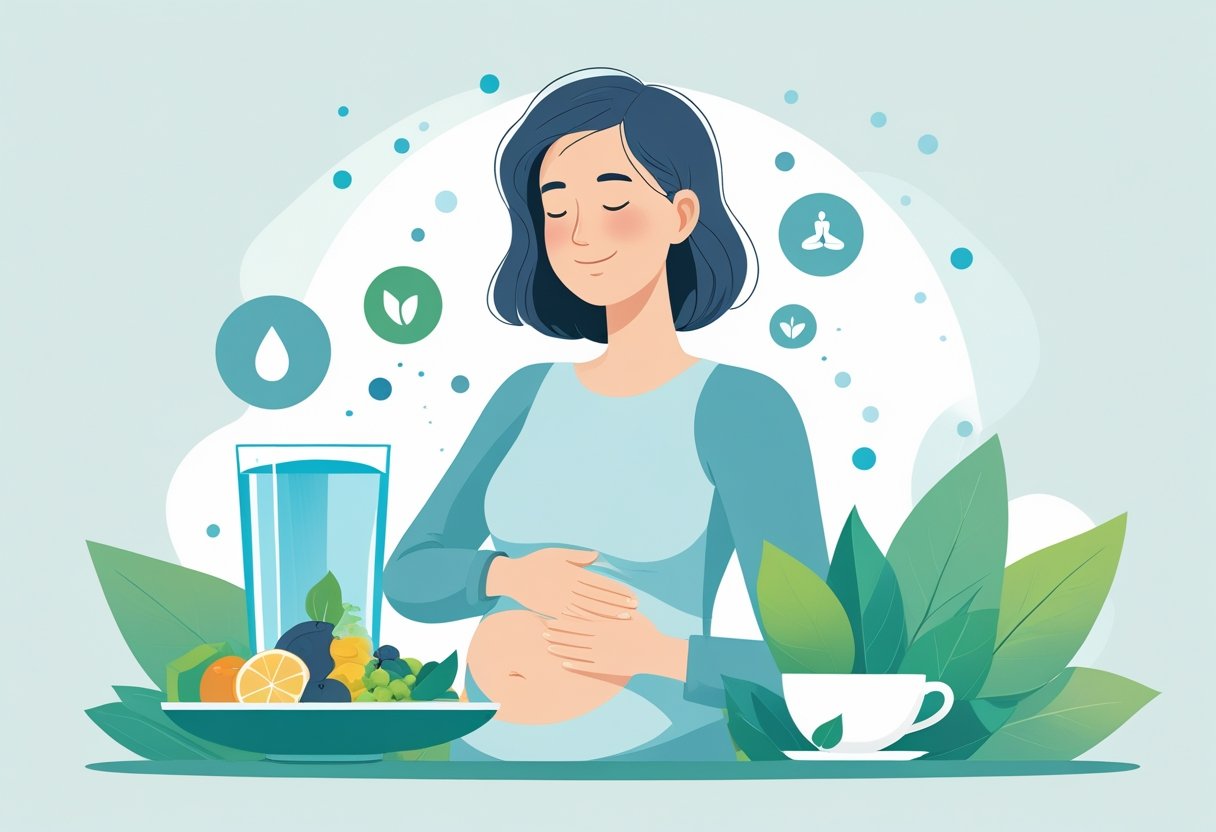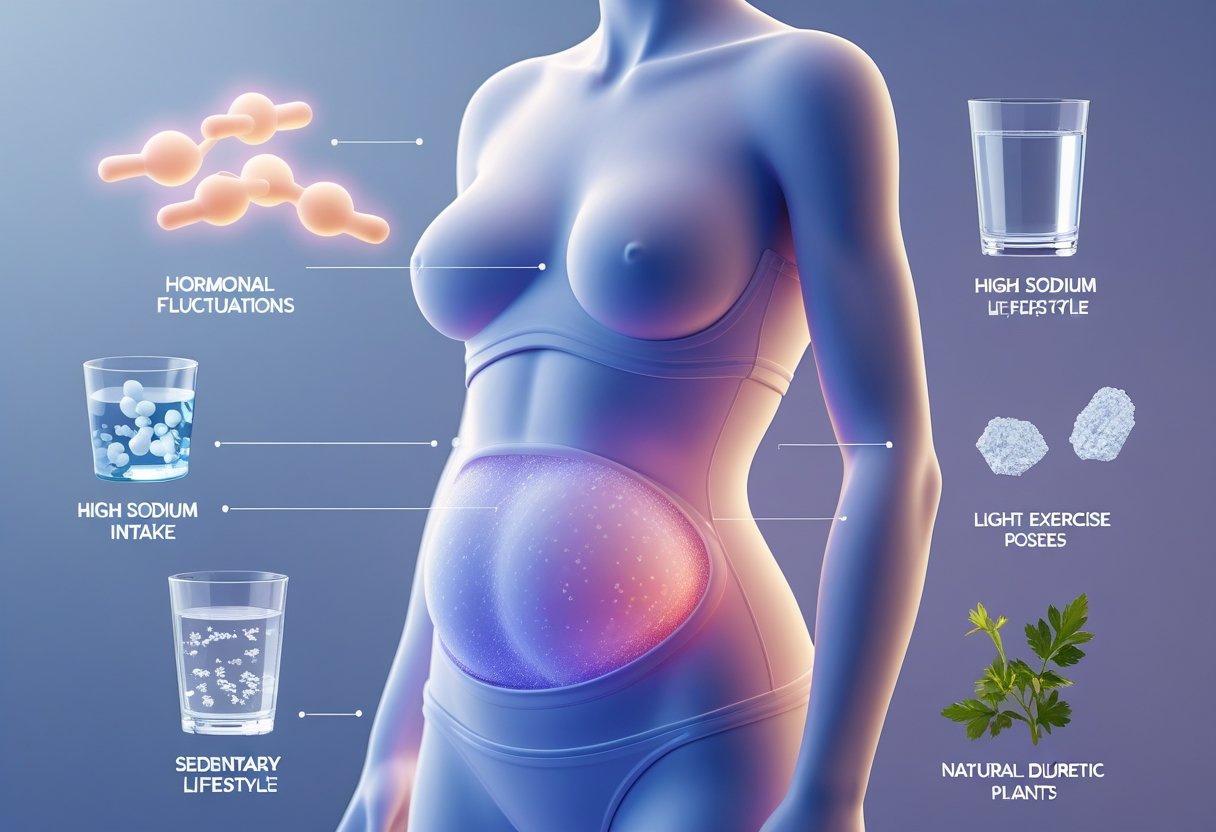Bloating and water retention are common issues that can make people feel uncomfortable and affect daily life. Both problems often cause swelling or puffiness, especially in the belly, legs, feet, or face, and can result from eating habits, hormonal changes, or even hot weather. For some, these symptoms show up after eating certain foods or right before their period, while others may notice swelling during long periods of standing or sitting.

While the causes can be simple, like too much salt or not moving enough, sometimes bloating and water retention signal a bigger health concern. Knowing the difference between normal bloating and swelling and when to look for help can make it easier to handle these problems and improve overall comfort. Simple changes, such as drinking more water, eating more fruits, and getting regular exercise, may help reduce these symptoms, and a low-sodium diet can make a difference too. To learn more about this topic, read about symptoms and possible remedies for water retention.
Key Takeaways
- Bloating and water retention can cause swelling and discomfort.
- Simple lifestyle changes often help reduce symptoms.
- Watch for warning signs that need medical advice.
Understanding Bloating and Water Retention
Bloating and water retention are common conditions that can make people feel uncomfortable or swollen. Both have different causes and symptoms, and knowing how they differ can help with managing each one.
What Is Bloating?
Bloating is a feeling of fullness or tightness in the stomach area. It often causes the belly to look bigger than usual and can be painful or uncomfortable. Most people experience bloating after eating certain foods or when digestion is slow.
Common causes include eating too much, swallowing air, eating gassy foods like beans or broccoli, or having digestive problems such as irritable bowel syndrome. Hormones and stress can also play a role in bloating. Sometimes, bloating might be a sign of more serious health problems, especially if it happens often.
Signs of abdominal bloating include a distended stomach, pressure, or rumbling sounds. Bloating is usually related to the digestive system and is not caused by extra fluid in the body. More information about the causes and prevention of bloating can be found on the Johns Hopkins Medicine page.
What Is Water Retention?
Water retention, also called fluid retention or edema, happens when the body keeps too much fluid in the tissues. This can lead to swelling, most often in the legs, ankles, feet, hands, or face.
Edema can be caused by standing or sitting for long periods, eating salty foods, hot weather, certain medications, or medical problems affecting the heart, kidneys, or liver. Unlike bloating, which is mainly about gas buildup in the gut, water retention is about fluids staying in body tissues.
People might notice their skin looks puffy, shoes or rings feel tighter, and there may be a dent left in the skin after pressing. Sometimes, water retention may be a sign of an underlying health issue. Learn more about symptoms and causes at Healthline’s water retention guide.
How Bloating Differs From Water Retention
While both bloating and water retention involve swelling, they have different causes and affect different parts of the body. Bloating is usually focused in the stomach and is mostly due to digestive issues or gas buildup. It creates a feeling of fullness or discomfort mainly in the abdomen.
In contrast, water retention can affect many parts of the body at once, especially the feet, ankles, hands, and face. It is caused by extra fluids collecting in body tissues, not gas. Bloating rarely leads to visible swelling outside the belly, but water retention often causes visible puffiness in the skin or limbs.
Another key difference is the underlying trigger. Bloating is tied to digestion, food choices, or gut health, such as in irritable bowel or food intolerance. Water retention is more often linked to fluid balance, hormones, or organ function. For a more detailed comparison, see the Better Health Channel on fluid retention.
Causes of Bloating
Bloating mainly happens because of how the digestive system handles food, how sensitive someone is to certain ingredients, and lifestyle habits affecting body weight and overall gut health. Understanding the main triggers can help people prevent or reduce uncomfortable belly symptoms.
Digestive Conditions
Digestive problems are a top reason for bloating. Irritable bowel syndrome (IBS) is a common condition where the gut finds it hard to move food along in a regular way. This can cause pain, bloating, and changes in bowel movements.
Constipation slows down the passage of waste, causing the belly to look and feel swollen. Poor movement of gas and stool through the colon raises pressure and makes the stomach feel tight or stretched.
Disruptions in gut bacteria, called the gut microbiome, can lead to excess gas as certain bacteria digest food. When the balance of these bacteria is off, it can cause even more bloating. Some infections or medical problems may also disturb normal digestion and lead to these symptoms. Find more explanation at this page on abdominal distension causes.
Diet and Food Triggers
Certain foods and drinks are known to trigger bloating. Items like beans and legumes produce more gas as they are broken down by gut bacteria. Eating a lot of fiber at once or adding it suddenly to your diet can also bring on bloating, especially if the body is not used to it.
Some people cannot digest lactose (found in milk) or gluten (in wheat and similar grains). For them, choosing foods that are low in FODMAPs (a group of hard-to-digest carbs) may help reduce bloating and gas.
Consuming alcohol can irritate the digestive system, leading to water retention. Reducing alcohol intake can be helpful, according to Cleveland Clinic.
Obesity and Lifestyle Factors
Being overweight raises pressure inside the abdomen, making bloating worse and increasing water retention. People with a higher body weight often report feeling bloated more often.
Lack of physical activity can slow down digestion and make constipation and bloating more likely. Doing regular exercise, even something as simple as walking, helps move gas through the intestines and lowers the feeling of fullness.
Long periods of sitting, poor posture, and eating quickly can also have a negative impact. Making lifestyle changes such as eating slowly, avoiding large meals, and staying active supports better gut health and can decrease bloating. To explore more, Johns Hopkins has tips about bloating and prevention.
Causes of Water Retention
Water retention can be triggered by different health problems, changes in the body, and even the use of some medicines. It often leads to swelling, bloating, and discomfort in the body.
Medical Conditions
Some medical problems can cause water to build up in the body. Edema is a condition where extra fluid gathers in tissues, often making the feet, hands, or ankles swell. People with heart problems like congestive heart failure may notice water retention as the heart struggles to pump blood well. This can lead to high blood pressure and increased swelling.
Kidney disease also affects the balance of fluid, since kidneys remove extra water and salt from the body. If the kidneys do not work properly, water may build up. Liver problems, such as cirrhosis, can upset fluid balance and cause the abdomen or legs to swell. Damage or weakness in leg veins, often from varicose veins or a deep vein thrombosis, makes it harder for blood to travel back to the heart, causing fluid to pool in the legs.
Other triggers can include infections or allergies, which sometimes make the body hold onto fluid as well. For more, see the details on how edema and various health conditions lead to water retention.
Hormonal Factors
Hormones control many body processes, and changes in them can cause water retention. This is common during the menstrual cycle, especially just before a period, when women can have bloating or breast tenderness. These symptoms come from hormone shifts, mainly changes in estrogen and progesterone.
Pregnancy can also cause the body to hold onto extra fluid because of hormonal changes that help support the growing baby. Some women feel swelling and discomfort in their feet, hands, and legs as pregnancy goes on. During menopause, falling levels of estrogen can also trigger shifts in fluid balance and increase water retention.
People with hormonal imbalances, such as thyroid hormone changes, may also have problems with swelling and trapped fluid. Hormonal changes are a common and natural cause, though the symptoms can be bothersome.
Medications and Supplements
Many medicines and even some supplements can lead to water retention. Certain medications used for high blood pressure, like calcium channel blockers, are known to cause swelling. Some painkillers, especially nonsteroidal anti-inflammatory drugs (NSAIDs), may also make the body hold onto fluid.
Steroid medicines, such as prednisone, are well known for causing puffiness and fluid build-up. Some antidepressants and diabetes drugs can also lead to increased water in the body. Even certain supplements, such as those containing creatine or high amounts of salt, may play a role.
Diuretics are sometimes used to treat water retention, but using them without a doctor’s advice can cause more harm than good. A shortage of some vitamins, like vitamin B6, can increase the chance of water retention in some people. You can read more about how medications and supplements cause water retention.
Symptoms and Signs to Watch For

Bloating and water retention can both cause discomfort but have different symptoms. Knowing the specific signs of each can help a person better understand what is happening in their body.
Symptoms of Bloating
Bloating usually causes the belly to feel full, tight, or even hard. This sensation can make pants feel tighter and cause mild pain or discomfort. The belly can look bigger than normal, sometimes suddenly after eating.
People might notice more frequent burping or passing of gas. In some cases, the stomach may make noises or rumble. The feeling is often described as having trapped gas or heaviness in the abdomen.
Common symptoms include:
- Abdominal bloating
- A visible increase in belly size
- Tummy pain or discomfort
- Excess gas, burping, or farting
- A feeling of fullness, even after small meals
For more details, visit the NHS guide to symptoms of bloating or learn about the classic signs of a bloated stomach.
Symptoms of Water Retention
Water retention happens when excess fluids build up in the body, often in the tissues. It can cause sudden or gradual swelling of the feet, ankles, hands, or even the belly.
The skin over swollen areas may look stretched or shiny. Pressing on the swollen spot with a finger may leave a temporary mark. Clothes, shoes, or rings may feel tighter than usual.
Other signs can include weight gain that happens over a short time, which does not match food intake. Some people also get headaches or feel sluggish.
Key signs of water retention:
- Swelling in hands, feet, ankles, or belly
- Sudden, unexplained weight gain
- Aching or discomfort in swollen areas
- Skin that is tight or shiny
- Headaches or a heavy feeling
For more about the symptoms of water retention, including when to talk to a doctor, read this guide from Better Health Channel.
How to Manage Bloating

Managing bloating focuses on changes to what people eat, choices that support the digestive system, and daily habits that can make a real difference. Small adjustments in routine, food selection, and gut support can help reduce everyday discomfort.
Dietary Adjustments
Certain foods and drinks can cause bloating. Eating less processed food, avoiding alcohol, and watching salt intake can help decrease water retention and discomfort. High-salt diets make the body keep more water, leading to a puffy feeling.
Fiber is important because it helps food move through the gut. Eating enough fruits, vegetables, and whole grains, but not too much at once, prevents both constipation and gas. Introducing fiber slowly stops gas and bloating.
Some individuals react to gluten or have issues with legumes, which can cause increased gas and bloating. Reading food labels can help people spot hidden triggers. Drinking plenty of water supports digestion and reduces the effects of a high-fiber diet. Visit the Cleveland Clinic’s page on causes and prevention of bloating for more information.
Improving Gut Health
Good gut health supports regular digestion. A healthy gut microbiome breaks down food and produces less gas. Eating foods rich in probiotics such as yogurt, kefir, and fermented vegetables keeps gut bacteria balanced.
Prebiotic fibers, found in foods like bananas, onions, and asparagus, also support gut health by feeding beneficial bacteria. Limiting artificial sweeteners and highly processed foods may lower the risk of upsetting the digestive balance.
Including both probiotics and prebiotics in the diet maintains a smooth-running digestive system and can prevent bloating. Managing stress through relaxation and regular sleep further supports gut health.
Lifestyle Modifications
Simple lifestyle changes reduce bloating. Regular physical activity helps keep the bowels moving. Even short walks after meals may ease bloating.Exercise has been shown to reduce stomach discomfort and help with water retention.
Slow, mindful eating can cut down on swallowed air, which is a common cause of bloating. Avoiding carbonated drinks and chewing gum can help for the same reason. Not smoking and maintaining a healthy weight also lower the risk of digestive problems tied to obesity.
Finally, keeping a food and symptom diary can help pinpoint which foods or habits trigger bloating and make it easier to manage.
How to Reduce Water Retention
Water retention can often be managed by making changes to diet and lifestyle. In some cases, medical treatments may be needed, especially if retention is linked to other health issues.
Dietary and Lifestyle Strategies
Lowering salt intake is important. High sodium can cause the body to hold onto water. Choosing fresh foods and avoiding processed or salty snacks can help.
Eating foods rich in potassium, such as bananas and sweet potatoes, may support the body in balancing fluids. Potassium helps counter the effects of sodium.
Drinking plenty of water might seem odd, but staying hydrated signals the body not to keep excess water. Limiting alcohol is also helpful. Alcohol can cause dehydration, leading to possible fluid imbalances.
Getting enough vitamin B6 through foods like chicken, fish, and potatoes is linked to reduced retention. Some also find that magnesium-rich foods, such as nuts and leafy greens, are helpful.
Regular exercise and moving the legs improve circulation and can lower swelling. Elevating the feet or wearing compression socks may also reduce fluid buildup.
For more tips, Orlando Health shares more on diet and lifestyle choices for water retention.
Medical Treatments
When lifestyle changes are not enough, a doctor might recommend diuretics. These are medications that help the kidneys remove excess water and salt from the body. Diuretics are often prescribed if a person has high blood pressure or certain heart or kidney conditions.
Some people may need other medications depending on what is causing the retention. Medical assessment can find underlying problems such as kidney disease or certain hormonal changes.
Certain supplements, like magnesium or vitamin B6, may also be suggested by a healthcare provider. Never start medications or supplements without talking to a doctor first.
For more details, check out common medical treatments for fluid retention.
When to Seek Medical Advice
It's important to know when bloating or water retention may need a doctor's care. Occasional bloating is common, but some signs should not be ignored.
Seek medical attention right away if:
- The swelling or bloating comes with severe pain
- There is chest pain or trouble breathing
- There is high fever or vomiting
- The swelling affects the legs, abdomen, or face
Persistent swelling or edema can be a warning sign. Edema happens when extra fluid builds up in the body. It may cause the skin to look tight or shiny, especially around the ankles or feet. Learn more about edema symptoms at Better Health Channel.
Sometimes, medications can cause bloating or water retention. These include medicines for high blood pressure, steroids, and some antidepressants. Anyone who notices increased swelling after starting new medication should contact their pharmacist or doctor.
People with other medical issues—such as heart, kidney, or liver problems—should be extra cautious. These conditions can cause or worsen fluid buildup in the body.
If the bloating or swelling lasts for several days, happens often, or comes with other symptoms like unexplained weight gain or shortness of breath, a doctor should check for underlying causes. Ongoing symptoms could signal a serious health problem, such as high blood pressure, which may also increase the risk of fluid retention.
For more tips on when to contact a healthcare provider, see Healthline.
Preventing Future Episodes
Making a few simple lifestyle changes can help prevent bloating and water retention. Eating mindfully ensures they chew their food well and avoid overeating. It's helpful to eat slowly, as this can reduce the amount of air swallowed during meals.
Certain dietary adjustments may lower the chance of episodes. Avoiding carbonated drinks and foods that are high in salt or artificial sweeteners can be effective for many people. Limiting high-fiber foods or introducing them gradually can also help those sensitive to fiber intake, according to Medical News Today.
Regular exercise supports gut movement and helps move gas through the digestive system. Staying hydrated by drinking water, not sugary drinks, can help reduce water retention and ease constipation.
Simple ways to reduce future bloating:
- Eat smaller meals more often
- Avoid carbonated beverages
- Gradually increase fiber intake
- Stay active with daily physical activity
- Drink plenty of water
Watching for patterns in which foods or habits trigger bloating can help individuals avoid future episodes. Keeping a food and symptoms diary is a practical way to track and manage triggers.
These prevention tips are supported by studies showing that lifestyle and dietary changes are some of the most effective steps to reduce bloating and discomfort, as seen in Healthline's recommendations.
Frequently Asked Questions
People often want fast ways to ease bloating, know which foods make water retention worse, and learn about treatment options. Others are looking for tips to manage swelling in the legs, reduce water weight in the belly, and understand why sudden bloating happens.
What are the most effective methods to reduce bloating quickly?
Drinking water can help flush out trapped gas and encourage digestion. Light exercise, like walking, may also move gas through the gut. Reducing salty foods and carbonated drinks, and eating slowly, can also cut down on bloating. Gentle abdominal massage sometimes brings relief as well.
For more tips, see how to reduce bloating.
Which foods should be avoided to minimize water retention?
Salty foods, processed meats, and canned soups often contain extra sodium that causes the body to keep water. Foods high in sugar and refined carbs can also make swelling worse. Avoiding these and focusing on fresh fruits and vegetables may help limit water retention.
See more about foods affecting water retention.
What treatments are available for water retention?
Simple home remedies include lowering salt intake, staying active, and drinking plenty of water. In some cases, a doctor might suggest diuretic medication if the swelling is due to a health issue. Wearing compression stockings is sometimes recommended to control symptoms.
Details can be found in this article on fluid retention.
How can one alleviate water retention in the lower extremities?
Elevating the legs above heart level helps the body remove extra fluid from the lower legs, ankles, and feet. Walking or moving the legs encourages blood flow, which can reduce swelling. Compression socks or stockings may also support circulation and limit fluid build-up.
Read more about symptoms and strategies for water retention.
Is there a way to lose water weight from the abdomen effectively?
Cutting back on salty foods and staying hydrated can limit extra fluid around the belly. Doctors may also recommend gentle exercise, which encourages the body to use up retained water. Focusing on a balanced diet with fewer processed foods supports this process.
Information on targeting bloating may be helpful.
Why does sudden stomach bloating occur and what does it indicate?
Sudden bloating is often caused by trapped gas from eating or drinking too quickly, certain foods, or digestive changes. It can also be linked to stress or hormonal shifts. If bloating happens often or with other symptoms, it may signal a medical concern and should be checked by a doctor.
Learn about possible causes of bloating.
Conclusion
Bloating and water retention are common issues that happen for many reasons. Hormones, stress, diet, and some medical conditions can all play a part.
Main signs include:
- Swollen belly
- Puffiness in the face, hands, or feet
- Feeling heavy or full
Simple lifestyle changes may help:
- Eating less salty food
- Drinking more water
- Staying active
- Managing stress
There are times when bloating is normal, like before menstruation. Hormonal changes can cause the body to keep more water, leading to symptoms such as breast tenderness and bloating, as discussed by Medical News Today.
If swelling is painful, happens often, or lasts for many days, it could be a medical problem. These could be signs of an underlying issue like a digestive disorder, heart, liver, or kidney disease. Learn more about common causes and warning signs at Cleveland Clinic and Healthline.
Knowing the signs can help people know when it might be time to seek care. Making small changes at home can often make a difference, but it is important to get checked if symptoms get worse or will not go away.

